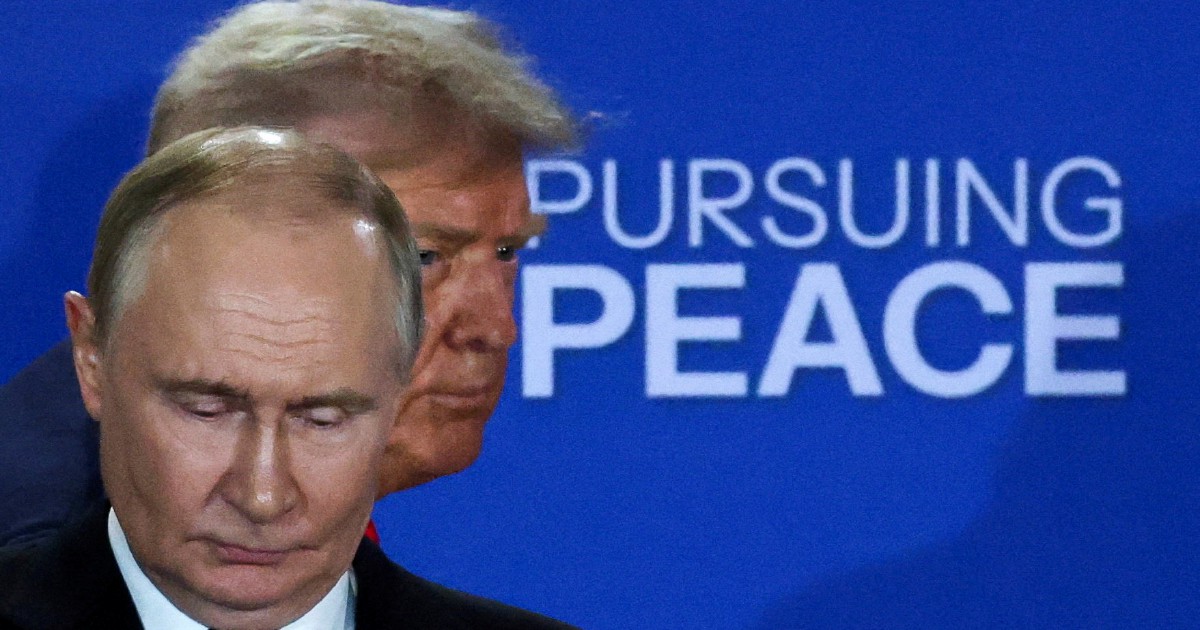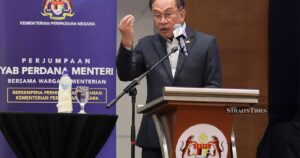IN a few short hours in Alaska, Vladimir Putin managed to convince Donald Trump that a Ukraine ceasefire was not the way to go, stave off US sanctions, and spectacularly shatter years of Western attempts to isolate the Russian president.
Outside Russia, Putin was widely hailed as the victor of the Alaska summit while at home, Russian state media cast the United States president as a prudent statesman, even as critics in the West accused him of being out of his depth.
Russian state media made much of the fact that Putin was afforded a military fly-over, that Trump waited for him on the red carpet, and then let the Russian president ride with him in the back of the “Big Beast”, the US presidential limousine.
But Putin’s biggest summit wins related to the war in Ukraine, where he appears to have persuaded Trump, at least in part, to embrace Russia’s vision of how a deal should be done.
Trump had gone into the meeting saying he wanted a quick ceasefire and had threatened Putin and Russia’s biggest buyer of its crude oil — China — with sanctions.
Afterwards, Trump said he had agreed with Putin that negotiators should go straight to a peace settlement and not through a ceasefire as Ukraine and its European allies had been demanding — previously with US support.
“The US president’s position has changed after talks with Putin, and now the discussion will focus not on a truce, but on the end of the war. And a new world order. Just as Moscow wanted,” Olga Skabeyeva, one of Russian state TV’s most prominent talk show hosts, said on Telegram.
The fact that the summit even took place was a win for Putin before it even started, given how it brought him in from the diplomatic cold with such pomp.
Dmitry Medvedev, Russia’s former president and a close Putin ally, said the summit had achieved a major breakthrough when it came to restoring US-Russia relations, which Putin had lamented were at their lowest level since the Cold War.
“The mechanism for high-level meetings between Russia and the United States has been restored in its entirety,” he said.
But Putin did not get everything he wanted and it’s unclear how durable his gains will be.
For one, Trump did not hand him the economic reset he wanted — something that would boost the Russian president at a time when his economy is showing signs of strain after more than three years of war and increasingly tough Western sanctions.
Yuri Ushakov, Putin’s foreign policy aide, said before the summit the talks would touch on trade and economic issues.
Putin had brought his finance minister and the head of Russia’s sovereign wealth fund all the way to Alaska with a view to discussing potential deals on the Arctic, energy, space and the technology sector.
In the end, though, they didn’t get a look in.
Trump told reporters on Air Force One before the summit started there would be no business done until the war in Ukraine was settled.
It’s also unclear how long the sanctions reprieve that Putin won will last.
Trump said it would probably be two or three weeks before he would need to return to the question of thinking about imposing secondary sanctions on China, to hurt financing for Moscow’s war machine.
Nor did Trump — judging by information that has so far been made public — do what some Ukrainian and European politicians had feared the most and sell Kyiv out by doing a deal over the head of Ukrainian President Vladimir Zelenskyy.
Trump made clear that it was up to Zelenskyy as to whether he would agree — or not — with ideas of land swaps and other elements for a peace settlement that the US president had discussed with Putin in Alaska.
While deliberations continue, Russian forces are slowly but steadily advancing on the battlefield.
According to the New York Times, Trump told European leaders that Ukrainian recognition of Donbas as Russian would help get a deal done.
And the US is ready to be part of security guarantees for Ukraine, German Chancellor Friedrich Merz said.
“For Putin, economic problems are secondary to his goals, but he understands our vulnerability and the costs involved,” said one source familiar with Kremlin thinking.
“It will be Trump’s job to pressure Ukraine to recognise the agreements.”
* The writer is from Reuters
© New Straits Times Press (M) Bhd






